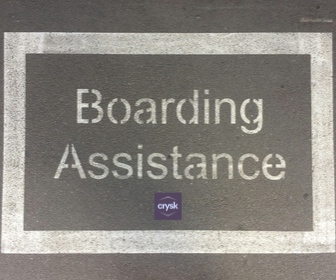
By Eric Groothedde
May 9, 2024
It’s staggering that crypto-asset service providers (CASPs) still have very limited access to financial services. In fact, some of their CEO’s estimate their chances of winning Wimbledon to be higher than getting a basic checking account with a well established financial institution. Imagine. One of them is blind.
Why are banks so nervous to onboard CASPs? Multiple reasons of course, so I’ll focus on some of the most heard. They probably will come as no surprise:
- Banks classify crypto as a high-risk industry, automatically leading to very restrictive policies and appetites
- Banks are in continuous struggles with supervisors to meet regulatory requirements concerning financial economic crime, crushing their desirability to take risks, focusing purely on limiting accountability
- Banks associate crypto with high-energy consumption, which is not in line with their more important sustainability strategies
- Banks don’t want to be accused of legitimizing an unregulated high-risk industry by supervisors
- Banks had bad experiences with innovation in the recent past and rather invest their money in the core functions of the bank
Regulation outpaces banks
Well well, doesn’t this sound like 2018? Or maybe earlier? It does. Banks have barely changed their positions towards servicing CASPs in the last couple of years. Despite experts in those organizations fully understanding the developments, opportunities and risks of not acting. Addressing this with key decision makers in the business, risk or compliance domain. Participating in industry associations, speaking on conferences and discussing possible collaborations. Progress has been limited.
You often hear the hard truth that regulation follows innovation. An even harder truth is that banks activity follows regulation. No wonder they can’t keep up.
It is over 6 years ago already that the European Commission published its FinTech Action Plan, which fast forward resulted into a string of regulatory frameworks in the EU applicable to CASPs, including the Markets in Crypto-Assets Regulation (MiCA), Digital Operational Resilience Act (DORA), and the DLT Pilot Regime. CASPs were already susceptible to regulatory AML/CFT and Sanctions regimes since 2020, with requirements further extended via the Transfer of Funds Regulation in 2023. Tax transparency rules are on the way.
Consequences of regulation
So what is the expected dynamic and consequence of this regulatory clarity in the EU?
- A clear distinction between CASPs that want to be compliance-first and compliance-last
- Consolidation as some CASPs might not be at the right level to meet regulatory obligations and costs
- An organization supervised by the same authority as a bank depolarizes the challenges of banks and CASPs
- CASPs will apply for banking services with more confidence and expect a bank to have a modernized approach to assessing opportunities.
- An increased pressure on banks to prepare for onboarding CASPs
Why banks need to prepare onboarding
Well, from a business point of view it is clear: fee income, cross-selling, gaining expertise and where desired partnerships for business development or capital investments. Though I want to bring more focus on another underestimated driver: the risk of de-risking.
The European Banking Authority (EBA) clarified their work on de-risking:
De-risking is “the refusal to enter into or a decision to terminate business relationships with individual customers or categories of customers associated with higher Money laundering (ML)/Terrorist Financing (TF) risk, or to refuse to carry out higher ML/TF risk transactions.” According to EBA, ‘de-risking should be the result of a ML/TF risk assessment’ and ‘might not be justified if a financial institution decides to reject a customer or an entire category of customers without due consideration of individuals’ risk profiles. Unwarranted de-risking may be a sign of ineffective ML/TF risk management and possibly breaches the right of individuals to access payment accounts with basic features, a right enshrined in EU law. EBA has also published an opinion here.
Indeed: while banks have been neglecting or rejecting CASPs for some time assuming they were improving ML/TF risk management, they factually have been doing the opposite.
Let us learn from existing cases: The European Commission is sponsoring the COBA-project in Europe, aimed at training banks to be capable of detecting and mitigating ML/TF risks in correspondent banking relations. A training on this was given by the Dutch Central Bank earlier this year. The goal is to prevent banks from terminating correspondent banking relations.
Also payment service providers (PSP) have been struggling to get or keep a bank account, after banks started off-boarding them as part of large compliance remediation programs, bringing these activities in the legal debate of de-risking. National market and competition authorities might force banks to maintain relationships with PSPs based on provisions in the Payment Service Directive II. An analogy can be made that the provisions of the Markets in Crypto-Asset Regulation are a strong foundation for a CASPs to claim access to financial services.
So what does preparing for onboarding mean?
Reflecting on the previously mentioned reasons why banks are reluctant to onboard them, they should now:
- Identify which CASP or which activity is considered high risk, and adjust policies and procedures accordingly
- See that onboarding CASPs in a well prepared way is showing good ML/TF risk management, just what they are aiming to do
- Have a more nuanced debate about the perceived high energy consuming crypto industry, e.g. learn the regulatory obligations for CASPs and issuers in MiCA on this
- Engage with their supervisor how servicing this industry is not about legitimizing an unregulated industry – it is providing more control, less concentration risk and more consumer protection
- Lick their wounds on their innovation efforts and stop unnecessarily paralyzing the organization to move ahead.
(and it might be very good business too…)
Feel free to reach out to me on eric@crysk.eu to discuss your organization’s situation. Looking forward to engage.
